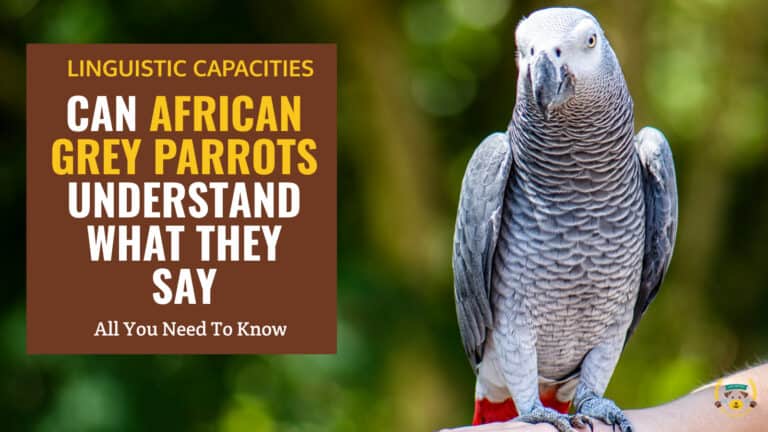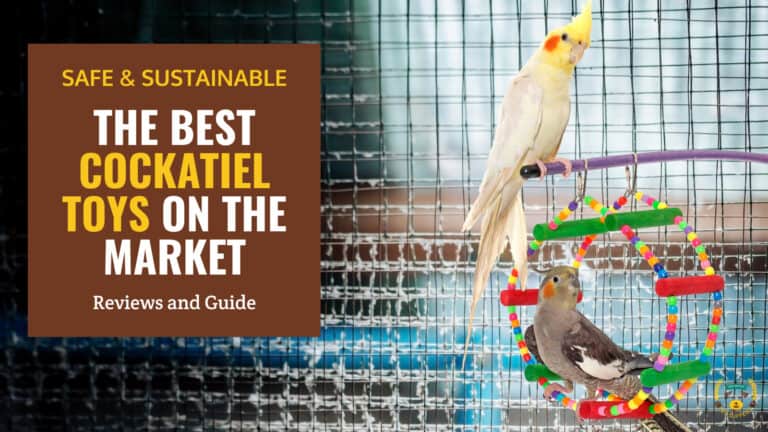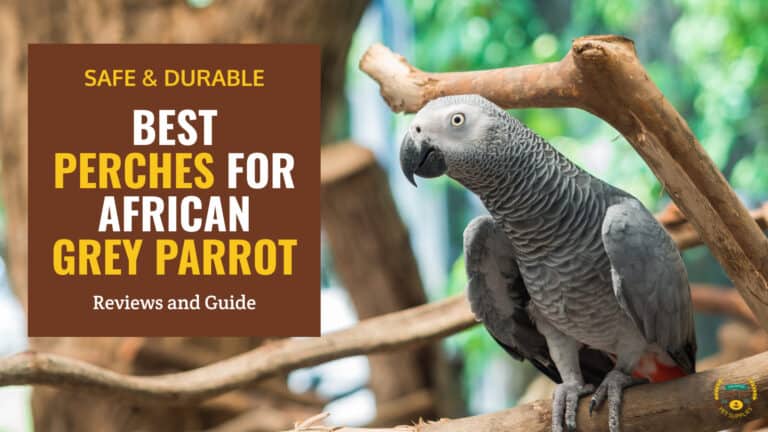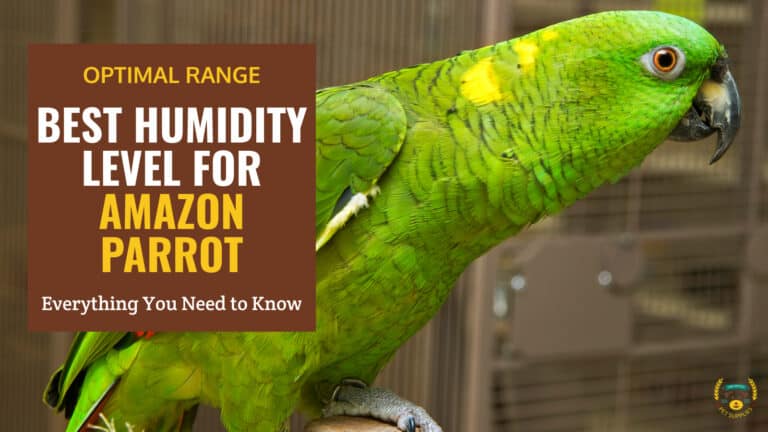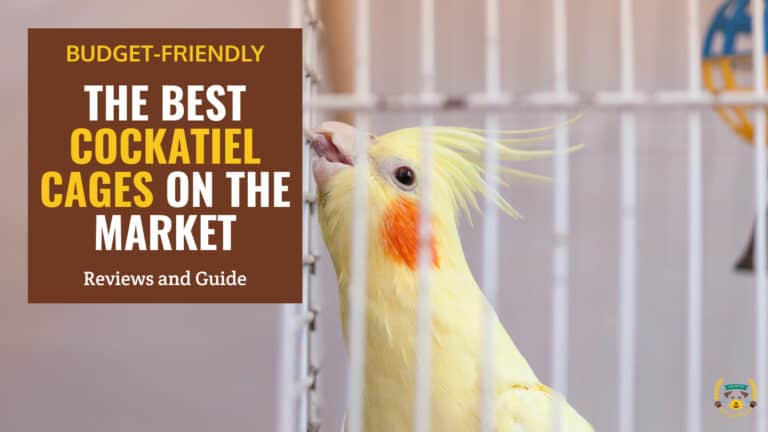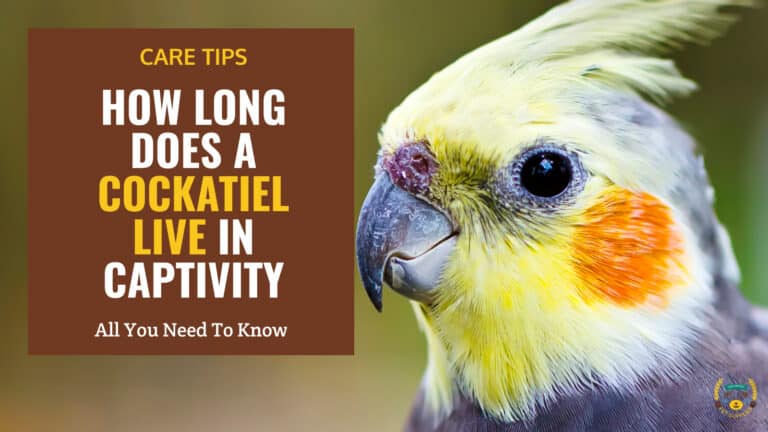Why and How Do Parrots Talk?
Last updated: February 3, 2024
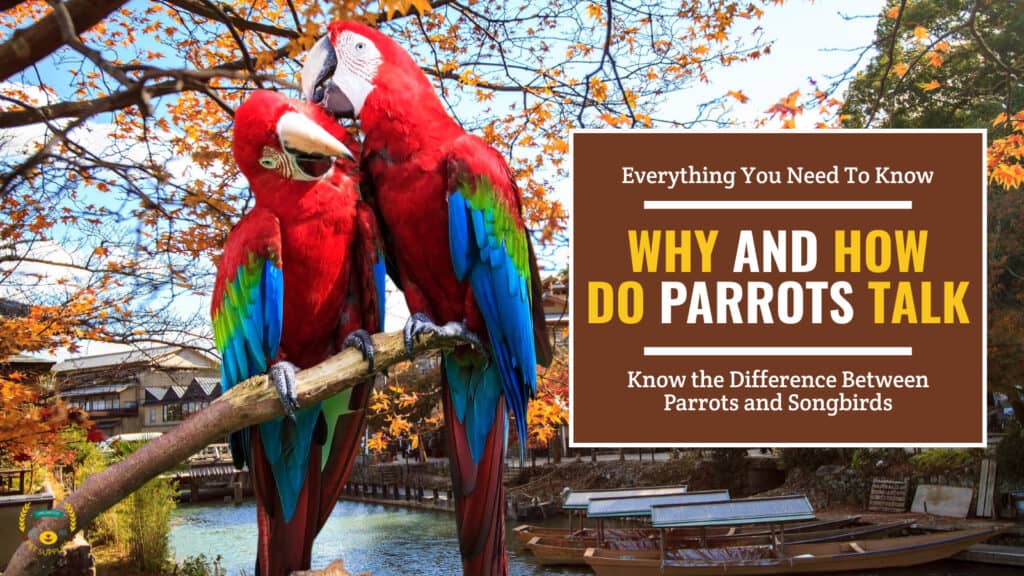
Summary
- Parrots can talk because they have a unique vocal organ and can control their voice.
- Parrots learn to talk by copying the sounds they hear around them.
- Parrots talk to communicate with humans, show dominance, or get what they want.
- The African Grey parrot is one of the most talkative parrots.
- Parrots can understand some words, but they don't fully understand language.
- Be careful what you say around parrots, because they can mimic human speech.
- Parrots are intelligent and social creatures, and they make great companions.
t is common knowledge that parrots have the ability to mimic other animals' vocalizations. This ability of birds to mimic a human's characteristics has been the subject of scientific study for many years. The reason behind it is that humans have a specific language pattern, and birds are known to be well-versed in recognizing human speech.
With lifelong training, African Grey parrots, in particular, can reach an astonishing vocabulary of 1000 words, although typical pet parrots often learn between 100 to 500 words. This remarkable linguistic capacity sets them apart in the world of talking birds.
The fact that many species of parrots can talk is a big part of what makes them so interesting. When a parrot imitates your voice or learns to make up silly words and whistle popular songs, it's funny and cute. But what's the real reason why parrots can talk? What does it take to make a parrot talk, and why do they do it?
How Do Parrots Talk?
When a parrot talks, it changes the way air flows through its syrinx, making sounds. The syrinx is in the space between the trachea and the lung.
African Grey parrots and other Amazon family birds are especially good at mimicking human speech and sounds. When I think about how parrots don't have teeth or lips, it never ceases to amaze me that my Greys can imitate my husband's voice tone.
Why Do Parrots Talk?
Psittacines, which include parrots, and Passerines, which include songbirds, use their voices to attract mates, talk to their young, and fight to protect their territory.
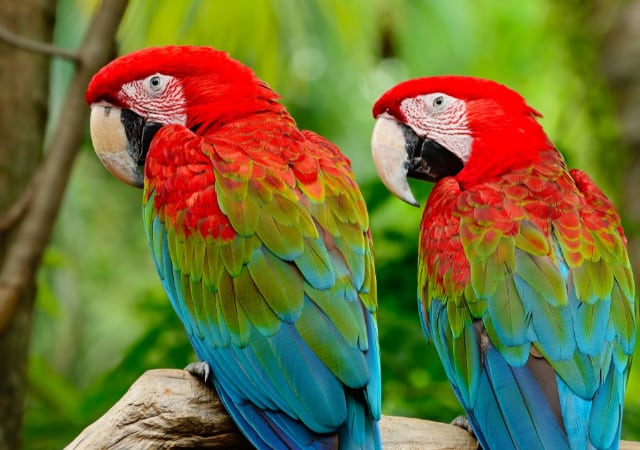
The sounds they make are very different. Some of them sound so good that Mozart made music out of the sound of his pet starling. However, some sounds can be extremely annoying, such as those made by Macaws or the shrieks of cockatoos or conures. Some Cockatoo owners have been seen sporting earplugs in their ears!
Wild parrots talk to each other by making sounds like whistles, chirps, and squawks. But how do the sounds of the birds' ancestors change into sounds that people can understand?
As scientists keep looking into how birds talk and how they can hear the rhythm, they keep finding out more and more about this fascinating topic.
It’s Natural
The ability to talk is a natural behavior for parrots; they learn to speak by copying the sounds they hear around them. This makes them very good at talking to people.
Parrots also use talking as a way to show dominance or excitement. Some experts believe that parrots speak to get what they want from humans, such as more food or attention.
Parrots are amazing creatures, and their ability to talk is just one of the many things that make them so unique.
Parrots Are Extremely Social
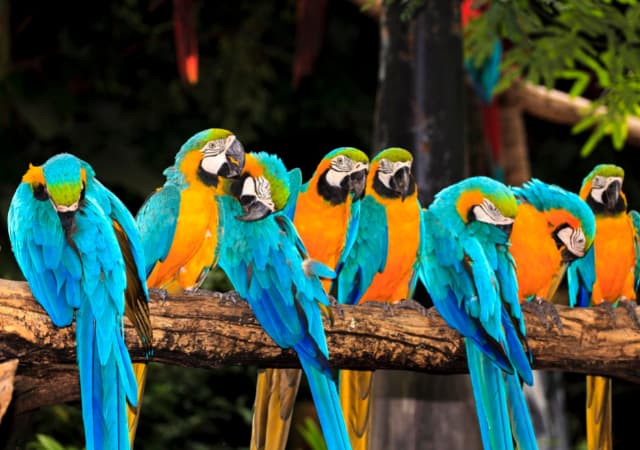
Parrots are very social animals, and they love to be around people as well as other parrots. Talking is how they connect with and get to know each other. They often try to copy the sounds they hear around them, including the sounds people make when they talk.
Because of this, parrots are very good at talking to people. They also talk to show who is in charge or to get excited. They want to be noticed! If this is the kind of pet you want, you can check out how much parrots cost, on average.
Your parrot is smart, and if you don't do anything, it will start making sounds. If the sound makes you do something (like pay attention), it could become its obsession, repeating it over and over until it gets what it wants from you.
However, the pets’ quest for attention could make them do bad things, like pull out their feathers or bite things off their cages. Watch how long these behaviors last before you do something about them!
They Are Trying to Communicate With You
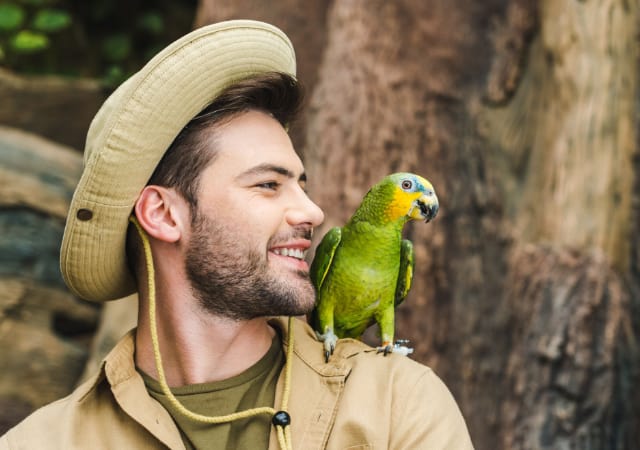
Once you've had your pet for a while, you'll notice how much it likes to observe things going on around it. It will not only copy your voice but also how you move.
Your pet will eventually figure out why you do things the way you do them. For example, if you get up early to feed your pet every day, it could start making a sound like your alarm clock when it goes off to see if you're bringing food. When it comes to food there are top-notch parrot food products you should consider getting for your parrot.
If you also stop every time your partner says "Honey," your bird might be able to copy the word and use it to call to you.
Difference Between Talking Birds and Songbirds
The main difference between talking birds and songbirds is that talking birds can mimic human speech while songbirds sing to communicate. Parrots are the best-known talking birds, but some crows, jays, and mynas can mimic human speech too.
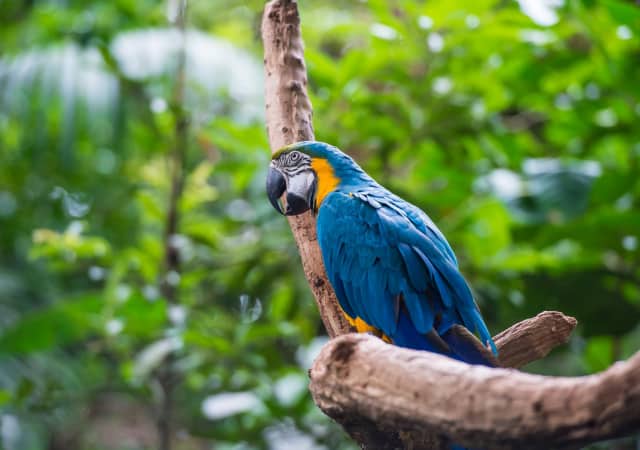
Wild parrots don't usually learn to talk because they don't live near humans. But captive parrots often learn to mimic human speech. They might copy the words and phrases they hear their owners say. Or they might imitate the sounds of TV shows, music, or other noises they hear coming from outside.
The songbird group includes more than 5,000 different birds from various families worldwide; these include Brown thrashers, sparrows, starlings, and crows.
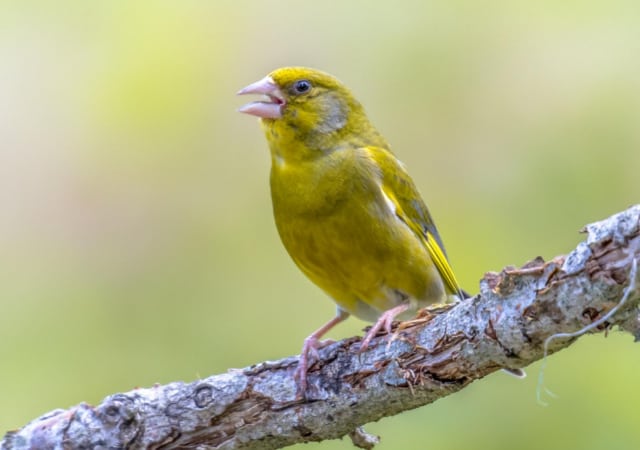
Songbirds have three main anatomical features that allow them to produce complex melodies: a syrinx, a specialized organ located at the base of their lungs; unique muscles in their throats; and a wide array of distinct sound-producing structures called "syringeal muscles."
Scientists believe songbirds evolved this superior vocal learning ability because they live in dense populations or flocks where they need to stand out from one another by producing distinctive songs or calls.
Why Can Parrots Talk While Other Birds Can't?
So why do parrots talk? Scientists believe it is because they want to communicate with humans. They have observed that birds learn best when exposed to sounds at a young age. Accordingly, it is believed that if a baby parrot hears human speech frequently, it will be more likely to mimic those sounds.
The ability to talk is a trait that is unique to parrots. Scientists believe that this is because parrots have a larger brain-to-body ratio than other birds. Their brains are specifically adapted to allow for complex communication.
In addition to their large brains, parrots also have well-developed vocal cords. As a result, they are able to produce a vast variety of sounds that are not produced by other birds. Parrots can also imitate human speech sounds, which is how they can learn to talk.
While some parrots may only be able to say a few words, others are capable of having entire conversations. The African Grey parrot is one of the most talkative parrots and is known for even understanding human speech.
Parrot Brain’s Structure
Parrot brains are specially adapted to allow for their ability to talk. The structure of a parrot's brain is very different from that of other animals, and scientists believe this enables them to mimic human speech so accurately.
The ratio of the frontal cortex of a parrot's brain is much larger than in other animals and is responsible for controlling the mouth's muscles. This area is also responsible for processing information from the parrot's environment, and it is thought that this allows them to understand the sounds they hear and reproduce them.
Parrots' Voice and How It Is Processed
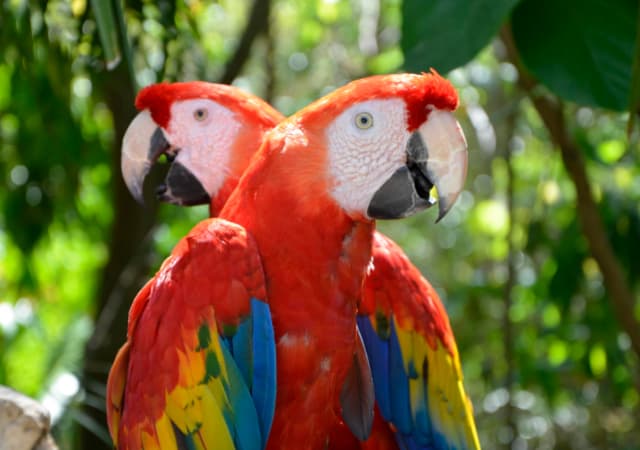
Parrots can talk because they have a unique ability to process their voice. It means that they can control their voice's pitch, volume, and tone. In this way, they may imitate human speech and other noises.
Still, parrots aren't the only ones capable of speaking. Other birds, such as mynah birds and crows, can also mimic human speech. However, parrots have a much more extensive repertoire of sounds that they can imitate. Additionally, parrots can combine words to create simple sentences.
Parrots also have a significantly developed vocal apparatus, which gives them a wide range of sounds to work with. The muscles in their throat and larynx are very well developed, and they also have a particular bone in their throat called the syrinx. Because of this, they are able to produce a diverse array of sounds, which is necessary for mimicking human speech.
No Lips, No Problem!
One of the most amazing things about parrots is their ability to talk. And even more impressive is that they can do it without lips!
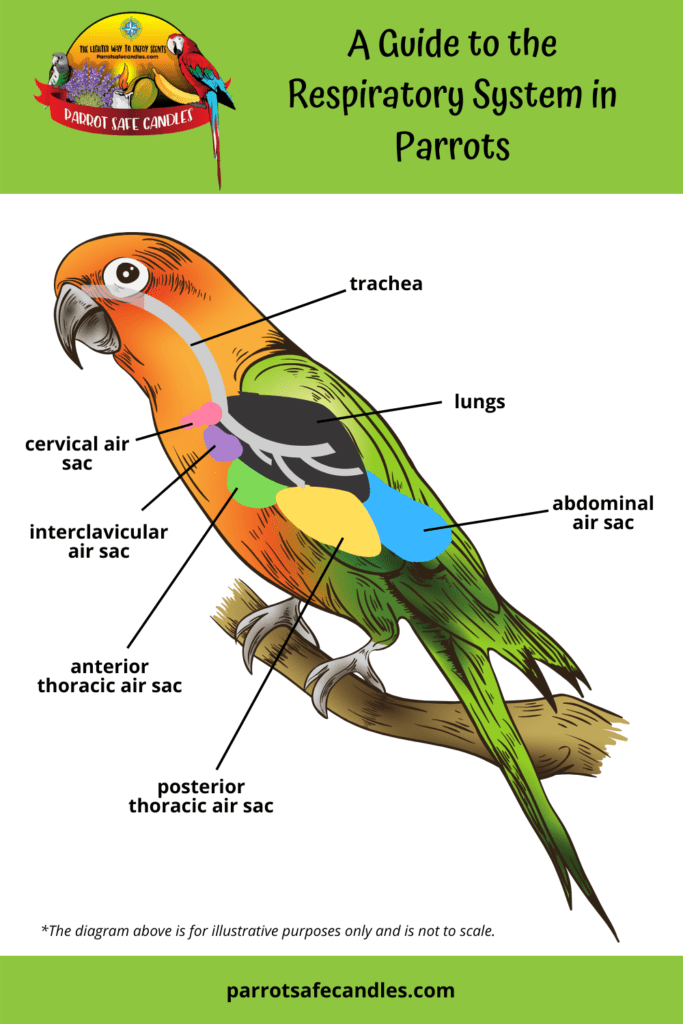
So, how do Parrots Talk? They have a unique vocal organ located near the base of their neck. This organ allows them to produce many sounds, including many human-like speech sounds.
Do Parrots Understand What You're Saying?
I'm almost sure that's the case. The words of a parrot might have associations, but they don't have deep meanings. When your pet asks you, "How are you?" What's up?” he/she doesn't care about how healthy you are. He/she links the phrase to the person who is coming into the room. In the same way, when he/she's in the room and sees you dressed up, he/she'll say "Goodbye."
When I was training my young macaw, I found that to be true. He can't say more than a few words, but he understands a lot. Should I also say "If Benny goes to bed too soon, he will immediately fall off his perch and crash on the railing.”
If I tell him, "Benny, it's time for bed," at 9 p.m., he'll say, "Step up!" "and go into his cage! If you talk to your pet as frequently as you can, he/she will have a better chance of understanding words and using them in the appropriate context!
Be Careful What You Say!
Be careful what you say in front of parrots. Because they have the uncanny ability to mimic words and phrases, they're often used as therapy animals.
Some parrots can even learn to talk in more than one language. So if you don't want your parrot to start repeating your expletives, it's best to watch your tongue around them.
Final Thoughts
How do parrots talk? A question that has long fascinated scientists and bird enthusiasts alike. And while we still don't have a complete answer, research is beginning to shed light on the unique ability of these birds to mimic human speech.
Parrots are quite skilled at imitating sounds, therefore they speak as a means of getting used to their new environment and familiarizing themselves with it. They also produce sounds for communication or domination purposes.
In this article, we did our best to cover all aspects of this fascinating topic. We discussed how and why parrots talk, and what makes them so skilled at doing so. Their anatomy seems to be specially designed to produce sounds and mimic speech.
If you are a parrot owner or thinking of getting one, you’ll very soon realize that they are not the easiest pets to keep and take care of, but they are certainly the best to keep as companions. They are smart enough to introduce a few interesting (positive) changes to your life! As time goes on, its vocabulary will expand to include more and more intriguing words that will compel you to pay attention to it.
Our recommendation is that you avoid using foul language all the time in order to keep your bird from picking up on it.

